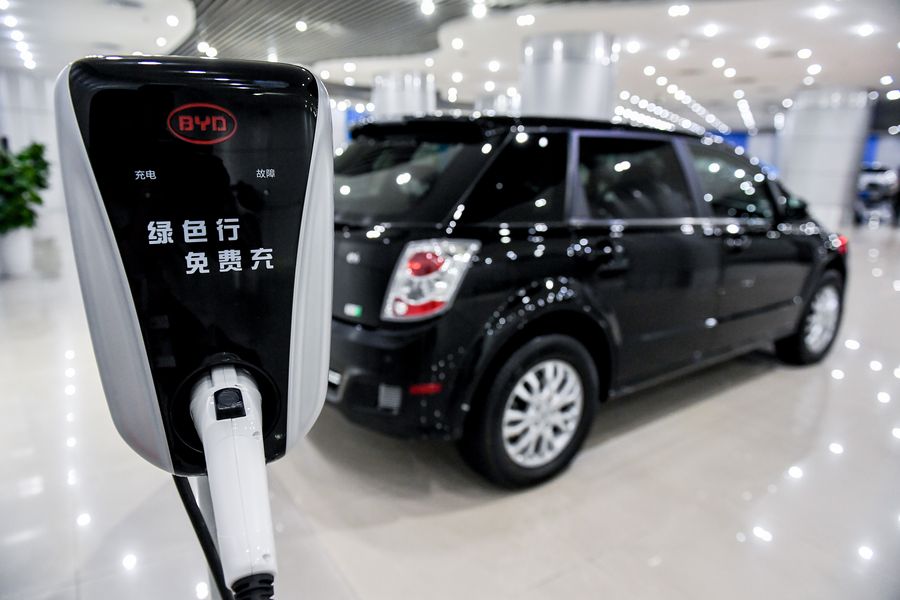
Photo taken on Nov. 30, 2018 shows a charging device and a new energy vehicle at the headquarters of Chinese carmaker BYD in Shenzhen, south China's Guangdong Province. (Xinhua/Mao Siqian)
NEV sales have been under pressure due to reasons including cuts in government subsidies and a fall in oil prices.
BEIJING, Sept. 7 (Xinhua) -- China's new energy carmakers had a tough first half of this year as shrinking government subsidies and rising competition weighed on sales.
Only three automobile companies with new energy vehicle (NEV) businesses saw net profit rise in H1, while most firms saw a slump in profits as sales missed expectations.
Changan Automobile, for example, saw net profits plummet nearly 240 percent year on year, while its mid-year sales of NEVs hit only 38 percent of its annual target.
Lifan, another carmaker with NEV businesses, reported losses of some 860 percent in H1, with a major setback in NEV sales.
Data from the China Association of Automobile Manufacturers showed that total sales of NEVs in China went down 4.7 percent year on year in July, the first decrease in nearly two years.
NEV sales have been under pressure due to reasons including cuts in government subsidies and a fall in oil prices, Cui Dongshu, secretary general of China's Passenger Car Association, told China Automotive News, an industry newspaper.
In a bid to encourage high-quality development of the sector, China has been phasing out subsidies for NEV purchase, which was put in place in 2010 to stimulate the popularity of NEVs.
After a three-month transition period ended on June 25, local governments have stopped subsidizing purchases of NEVs other than new energy buses and fuel cell vehicles.
The measures will support market competition and encourage carmakers to improve their efficiencies, analysts said.



